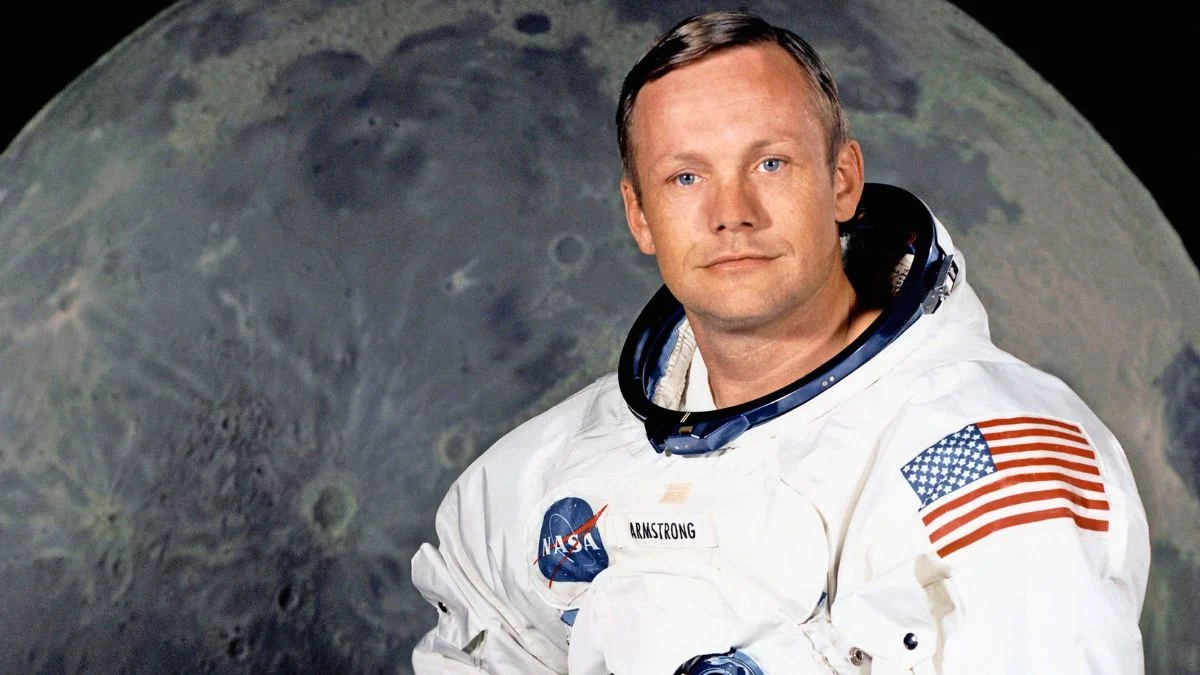
Space films strive to recreate the experiences most people can only dream of – the sounds of a spacecraft, the profound silence as Earth becomes a distant, beautiful sphere. Filmmakers dedicate years to achieving this feeling, and viewers passionately debate which movie captures it best.
When considering how successful this undertaking was, it’s natural to think of those who experienced it firsthand: the astronauts. They’ve witnessed the darkness of space and the Earth’s glow, and their opinions are incredibly valuable – especially those of the very first person to walk on the Moon.
Interestingly, Neil Armstrong had a clear favorite movie, and it wasn’t something promoted by the film studio. This preference came to light through a story told by film critic Gene Siskel. He remembered a conversation with Armstrong on a flight to Cincinnati, where Armstrong confirmed his admiration for a particular film, calling it “the single best vision of space ever to come out of the movies.”
Film critic Gene Siskel recalled a conversation he had with astronaut Neil Armstrong. While traveling to Cincinnati, Siskel sat next to Armstrong and asked him about space movies. Armstrong said that, of all the films he’d seen, Stanley Kubrick’s ‘2001: A Space Odyssey’ was the most realistic in portraying the experience of space travel and living in outer space. Siskel’s colleague, Roger Ebert, jokingly called it the best review Kubrick ever received.
Considering what ‘2001: A Space Odyssey’ actually shows, the film’s artistic choices feel right. It unfolds slowly, valuing quiet moments and depicting astronauts moving with a calm, weightless quality. The film’s immense scale feels both beautiful and detached, a feeling that likely resonated with someone who experienced the isolation of space firsthand.
The timing of events adds another fascinating dimension to the story. Kubrick’s film, *2001: A Space Odyssey*, came out in 1968, and just a year later, Apollo 11 landed on the moon. People went from seeing a fictional journey to the moon on the big screen to watching Neil Armstrong and the astronauts actually make that journey live on TV. It was a rare moment where a work of fiction and a real historical event powerfully mirrored each other.
Because Armstrong was a very private person, stories about him often come from those who briefly met him. That’s why film critic Siskel’s memory is so special. It wasn’t a formal interview – just a simple account of sitting next to a quiet man who had achieved something extraordinary: being the first to walk on the moon.
Trailer for 2001 A Space Odyssey. #2001aspaceodyssey #StanleyKubrick
— SciFi Art (@retroscifiart) January 26, 2018
Many recent space movies have been celebrated for getting the science right and creating strong emotional experiences. Films like ‘Apollo 13’ made you feel like you were trapped in a damaged spacecraft, ‘Gravity’ turned space junk into a terrifying fight for survival, and ‘Interstellar’ visually explained the complex forces around a black hole. However, the way people still connect to the first moon landing reminds us of a film that let the visuals and the feeling of the moment speak for themselves.
Perhaps the key takeaway from his subtle approval is this: the best space movies aren’t just visually accurate. They also capture the feeling of vastness and silence, allowing the audience to pause, reflect, and truly imagine. When asked about his favorite, a former astronaut chose ‘2001: A Space Odyssey’.
Read More
- Gold Rate Forecast
- 2025 Crypto Wallets: Secure, Smart, and Surprisingly Simple!
- Top 15 Insanely Popular Android Games
- The 10 Most Beautiful Women in the World for 2026, According to the Golden Ratio
- HSR 3.7 story ending explained: What happened to the Chrysos Heirs?
- ETH PREDICTION. ETH cryptocurrency
- Games That Faced Bans in Countries Over Political Themes
- Did Alan Cumming Reveal Comic-Accurate Costume for AVENGERS: DOOMSDAY?
- Why Nio Stock Skyrocketed Today
- ‘Zootopia+’ Tops Disney+’s Top 10 Most-Watched Shows List of the Week
2025-10-13 08:49